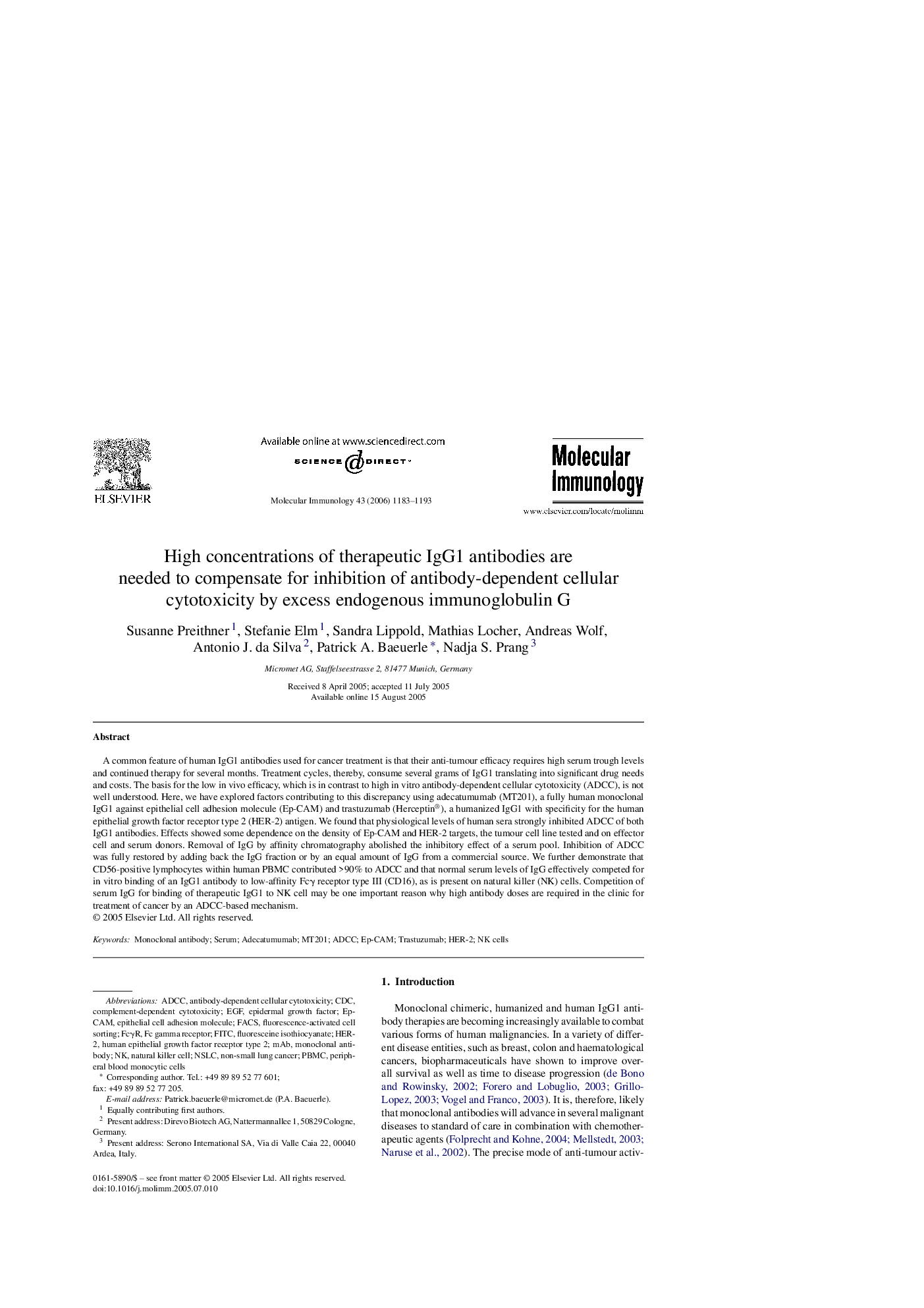| کد مقاله | کد نشریه | سال انتشار | مقاله انگلیسی | نسخه تمام متن |
|---|---|---|---|---|
| 2833045 | 1163856 | 2006 | 11 صفحه PDF | دانلود رایگان |

A common feature of human IgG1 antibodies used for cancer treatment is that their anti-tumour efficacy requires high serum trough levels and continued therapy for several months. Treatment cycles, thereby, consume several grams of IgG1 translating into significant drug needs and costs. The basis for the low in vivo efficacy, which is in contrast to high in vitro antibody-dependent cellular cytotoxicity (ADCC), is not well understood. Here, we have explored factors contributing to this discrepancy using adecatumumab (MT201), a fully human monoclonal IgG1 against epithelial cell adhesion molecule (Ep-CAM) and trastuzumab (Herceptin®), a humanized IgG1 with specificity for the human epithelial growth factor receptor type 2 (HER-2) antigen. We found that physiological levels of human sera strongly inhibited ADCC of both IgG1 antibodies. Effects showed some dependence on the density of Ep-CAM and HER-2 targets, the tumour cell line tested and on effector cell and serum donors. Removal of IgG by affinity chromatography abolished the inhibitory effect of a serum pool. Inhibition of ADCC was fully restored by adding back the IgG fraction or by an equal amount of IgG from a commercial source. We further demonstrate that CD56-positive lymphocytes within human PBMC contributed >90% to ADCC and that normal serum levels of IgG effectively competed for in vitro binding of an IgG1 antibody to low-affinity Fcγ receptor type III (CD16), as is present on natural killer (NK) cells. Competition of serum IgG for binding of therapeutic IgG1 to NK cell may be one important reason why high antibody doses are required in the clinic for treatment of cancer by an ADCC-based mechanism.
Journal: Molecular Immunology - Volume 43, Issue 8, March 2006, Pages 1183–1193